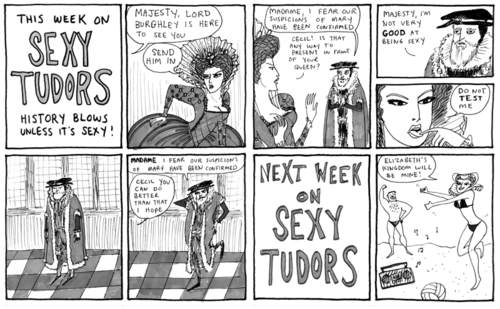Despite many gender norms of what people consider to be "women's work" or "men's work", the comic book industry is about as male dominated as many other professions. In other words, it is very male dominated. Sad, but true, though women have not been short on their contributions to furthering the trends, tales, and production of comics.
Rose O'Neil, , born in Wiles-Barre, PN as the second of seven children, was one of the first few women to get the ball rolling. She held a long-standing love of comics, but was unable to pursue them until the nineteenth century, when women artists became part of professional enterprises, thanks to improving educational opportunities. Her career took off after her development of the Kewpie cartoons, and, subsequently, the marvel that was the Kewpie Doll.


Ethel Hayes not only brought comics created by women into the limelight, but she also had a hand in taking the trends and shifting them to her own design, much like taking the bull by the horns. Ethel was well known for drawing in the popular Art Deco style of the 1940s, and took the popular Flapper Girl, transforming her from a marketable pin up to Flapper Fanny Says, a witty weekly comic about young women of the flapper age in more stylistic settings. And after her prominent comic career, she even had time to become a popular children's book illustrator.



Jumping forward roughly a century, we find that women in illustration are becoming more and more common, though the age of Rose and Ethel, known as the Platinum Age, has given way to the slowly improving Bronze age and going even more steadily into the Modern Age. One of the most well-known comic illustrators of the Modern Age is a women by the name of Kate Beaton, one of the first women to become popular based on her internet notoriety.



Using historical, literary, and even at times contemporary parody alongside modern day humor and a stylized sunday-comic approach, Beaton has transformed her strip comics into an internet sensation. It is partially thanks to the internet that Beaton has become as popular a comic artist as she is today.
No comments:
Post a Comment